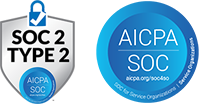What Is Background Check?
A Background Check is the process of verifying a candidate’s history—including prior employment, education credentials, criminal records, and credit history—to confirm qualifications and assess risk. Employers use standardized searches, public-records databases, and reference contacts to compile a comprehensive profile before extending an offer.
Why Background Check Matters
Background Checks protect organizations from negligent hiring liability, workplace safety incidents, and reputational damage. They also help ensure compliance with industry regulations—such as healthcare and financial-services licensing—and verify that candidates meet role-specific requirements, reducing turnover and legal exposure.
Where Background Check Is Used
- Corporate Hiring: Verifying executive and staff credentials.
- Healthcare: Confirming licenses, malpractice history, and patient-safety incidents.
- Financial Services: Screening for fraud, credit issues, and regulatory compliance.
- Education: Validating teaching credentials and past misconduct.
- Gig Economy & Contract Work: Ensuring platform safety for drivers, delivery personnel, and contractors.
Background Check Key Benefits
- Risk Mitigation: Identifies criminal history and fraud indicators before onboarding.
- Compliance Assurance: Meets legal requirements for regulated roles and industries.
- Quality Control: Verifies education and credential claims to ensure candidate competency.
- Brand Protection: Shields employer reputation by preventing high-profile incidents.
- Retention Improvement: Reduces turnover by confirming good cultural and performance fit early.
Best Practices & Examples
- Standardized Policies: Define uniform checks based on job level and legal jurisdiction.
- Consent & Privacy: Obtain written candidate consent and secure data per privacy laws.
- Tiered Screenings: Tailor depth—basic identity verification for entry roles, enhanced checks for executives.
- Vendor Management: Partner with accredited screening providers to ensure accuracy and compliance.
- Continuous Monitoring: For critical roles, implement ongoing checks to catch new incidents post-hire.
Conclusion
A well-structured Background Check program balances thorough risk assessment with candidate privacy. By standardizing processes, securing data, and integrating screening into recruitment workflows, organizations hire confidently—upholding safety, compliance, and employer brand integrity.
Background Check FAQs
Q: What is meant by background check?
A Background Check means systematically verifying a candidate’s history—employment, education, criminal and credit records—using public-records searches, reference contacts, and licensed databases to confirm qualifications and assess potential risks before hiring.
Q: What is your background check?
Your Background Check refers to the report compiled on you by the employer’s screening partner, detailing your verified work history, education credentials, criminal record status, and any other checks required for the role.
Q: How do HR do background checks?
HR teams initiate Background Checks by collecting consent, submitting candidate data to a screening vendor, defining scope (criminal, education, credit), reviewing returned reports, and flagging any discrepancies for follow-up or disqualification.
Q: How can I get background check in India?
In India, Background Checks are conducted via private screening firms. Candidates provide identity and address proofs; firms access national criminal databases, educational institution records, and credit bureaus to prepare a comprehensive verification report.



